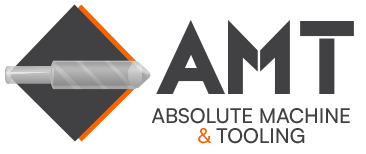CNC Machining vs Conventional Machining
Discover the advantages that CNC machining can bring to your project over conventional machining. Join us as we explore the nuances of both methods.

Due to the ever-evolving needs of clients, the manufacturing industry needs to stay agile to adapt. Computer-numerical control (CNC) machining has become a massive boon to many operations, which include precision cutting, shaping, center lathes, and other state-of-the-art equipment.
Many manufacturers choose CNC machining for its great advantages; however, that does not mean that traditional methods should be discounted altogether. Instead, you should choose the method that best suits your project; after all, it’s not one size fits all.
CNC Machining – Precision and Speed
CNC machining services are exquisite and precise, aiming to make accurate cuts without the need for manual intervention. Combining a digital solution to help transform and manipulate the physical world requires expertise in designing and building a great system so that it will work harder for your team.
The CNC process has many different aspects, including milling, drilling, turning, and shaping – all of which are automated.
Advantages of CNC Machining
There are various advantages to choosing CNC manufacturing, including:
- Speed: Feeding and cutting speeds in CNC manufacturing have been accelerating for decades. According to a 1996 article from Modern Machine Shop, maximum feed rates in the 1970s were in the range of 100 inches per minute (ipm). By 1996, 600 ipm had become common and the best machines stretched to 1200 ipm. Today, some CNC machines are able to tip the scales at 2000 IMP in the right circumstances (while cutting steel!).
- Precision and Accuracy: CNC machining produces intricate and complex parts with close precision, which means there's complete consistency even in a large, full-scale production run. The thickness of a human hair is 0.002” (0.05 mm). Certain job shops today are now able to routinely hold tolerances even tighter than 0.00003937” (0.0001mm) — a single micron, or 1/500th of a human hair. While submicron tolerances are only necessary in rare circumstances, it would be difficult for other manufacturing processes to replicate this level of extreme precision.
- Automation Efficiency: CNC machining is mainly automated, which largely reduces the margin of error and rework. These increase job completion speed by allowing for 24/7 unmanned operation, provided that the right controls are in place.
- Versatility and Adaptability: CNC machinery can adapt to diverse materials — from woods and plastics to aluminum, stainless steel, titanium, and more — and virtually any geometric shapes. This makes it suitable for a broader range of applications in industries that demand your deliverables to be extremely precise for safety, like aerospace, automotive, and medical.
- Complex Designs: With multi-axis capabilities, CNC machining tackles complex designs that conventional methods might struggle to replicate.
CNC machining offers exceptional precision. However, it also requires trained staff, operators, and technicians who can fully utilize the equipment and machines while being safe and efficient.
Conventional Machining – Technical Expertise and Time-Tested Solutions
Conventional machining is a time-tested solution that requires a human operator. Skilled operators and machinists manually craft and control lathes, mills, bores, drills, and other heavy equipment and sharp-cutting machinery.
The biggest consideration in favor of conventional machining is the technical expertise that humans have — you have full control of the project. Of course, there’s always the advantage of the human touch, too — you have the ability to see things in a way a computerized system can not.
Here are some advantages as to why you may want to consider conventional machining:
- Craftsmanship: Conventional machining relies on the expertise of skilled machinists who bring a hands-on approach to the manufacturing process, making it easier to consult with the rest of the team as to the direction of the project.
- Cost-Effective for Small Runs: For small production runs or prototypes, conventional machining may be more cost-effective, as it doesn't require the programming and setup associated with CNC. Since there is less onboarding time, you can spend more time crafting the prototype before it's in full-scale production.
- Adaptability: Technicians can adapt quickly to changes, making it suitable for customized or unique projects that demand flexibility.
- Tooling Variety: With conventional machining, you are able to use multiple tools at once and switch between them as needed for intricate designs and increased flexibility.
While conventional machining offers craftsmanship, custom designs, and adaptability, it may lack the efficiency, speed, and capabilities to deliver a large production run at scale.
Choosing the Right Method for Your Project
Both methods have their advantages, so it’s important to take your time in deciding what’s best for your project. It’s also important to keep a few things in mind, such as:
- Scale of Production: A large or medium-sized production run will require many resources and repetitive work. Part consistency also needs to be guaranteed, especially if you are delivering products to a highly regulated industry. CNC services can guarantee that at scale.
- Budget and Project Costs: Bidding for a project is a representation of the character of your brand. Staying on the project not only makes you profitable but also gives you a positive reputation and feedback from the client. CNC cutting can help you "cut" costs by giving you a competitive advantage on these projects.
- Skilled Labor: Conventional machining takes skilled labor, which can be difficult and costly. The best CNC machines can do the work of many people in half the time. Operators with minimal experience can participate in large production runs with the help of CNC equipment.
At Absolute Machine and Tooling, a ReNEW Manufacturing Solutions partner, we provide all the capabilities necessary to handle everything from a small prototype to a full-scale production run. We deliver high-quality CNC machining services with skilled operators, knowledgeable partners, and consultants.
Get started today to learn more about how our modern capabilities can help you make the most out of your budget.
